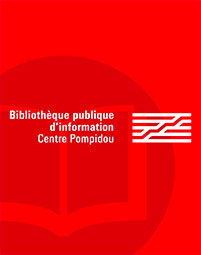par Newman, John Paul (1978-....)
Cambridge university press
2015 -
-
Disponible - 949.7 NEW
Niveau 2 - Histoire
Résumé : "L'auteur étudie les conséquences de la Grande Guerre sur les combattants, et les états impliqués, une fois les combats terminés. Il traite plus spécifiquement de la Yougoslavie de l'entre-deux guerres et de la «nouvelle Europe» créée à la fin du conflit, mais aussi l'Europe dans son ensemble. La fin de la Première Guerre mondiale et les Accords de Paris ont établi un moment bref et sans précédent d'unité apparente en Europe. Pour la première fois, l'Europe de l'Est et de l'Ouest se ressemblaient, en commençant une ère éphémère d'États-nations gouvernés par des institutions politiques libérales. Les démocraties d'Europe occidentale comme la Grande-Bretagne et la France ont fourni un modèle d'émulation pour les états comme la Tchécoslovaquie, la Roumanie, la Pologne et la Yougoslavie.Ainsi de nombreux vétérans de guerre qui avaient servi ou combattu dans des armées rivales pendant la guerre sont devenus après 1918 les sujets d'un même État, bien qu'ils aient insufflé dans cette paix les les divisions des guerres passées . John Paul Newman raconte leur histoire, montrant comment l'état Slave du sud a été incapable d'échapper à l'ombre jetée par la Première Guerre mondiale. Newman révèle comment la fracture profonde laissée par la guerre a traversé les états fragiles de la «Nouvelle Europe» dans l'entre-deux-guerres, aggravant leurs nombreux problèmes politiques et sociaux et amenant la région dans un nouveau conflit à la fin de l'entre-deux guerres.

 Les bibliothèques de prêt de la ville de Paris
Les bibliothèques de prêt de la ville de Paris
 Les bibliothèques universitaires
Les bibliothèques universitaires
 La BnF
La BnF
 L'encyclopédie Wikipédia
L'encyclopédie Wikipédia
 L'Encyclopædia Universalis
L'Encyclopædia Universalis
 La bibliothèque du film
La bibliothèque du film
 La bibliothèque du cinéma François Truffaut
La bibliothèque du cinéma François Truffaut
 La médiathèque musicale de Paris
La médiathèque musicale de Paris
 La médiathèque de la Philharmonie de Paris
La médiathèque de la Philharmonie de Paris




















































